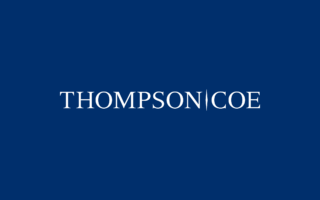Texas Supreme Court Issues Significant Decision on Exception to “Eight Corners” Rule
By Wade C. Crosnoe, J. Richard Harmon, Jo Allison (Jody) Stasney • Feb 11, 2022
On February 11, the Supreme Court of Texas issued an opinion that will significantly impact insurance litigation and claims handling. In the opinion, the court recognized the Northfield exception to the “eight corners” rule, which permits courts to consider extrinsic evidence in determining an insurer’s duty to defend in certain circumstances. However, the court also ruled that the exception does not permit consideration of the extrinsic evidence at issue—the parties’ stipulation regarding when the drill bit stuck in the well borehole, offered to show that no property damage occurred within the commercial general liability (CGL) policy period—because the evidence overlaps with the underlying merits.
Exception to the “Eight Corners” Rule
The Supreme Court answered the first certified question from the Fifth Circuit—whether Texas recognizes the Northfield exception to the eight-corners rule—“yes.” The Supreme Court made a few tweaks to the exception as stated in the Northfield case, holding that the exception is not limited to extrinsic evidence relating to “fundamental coverage issues” and requires “conclusive” evidence for the insurer to prevail.
The exception as recognized by the Supreme Court is that:
“Texas law permits consideration of extrinsic evidence [in determining the duty to defend] provided the evidence (1) goes solely to an issue of coverage and does not overlap with the merits of liability, (2) does not contradict facts alleged in the pleading, and (3) conclusively establishes the coverage fact to be proved.”
With respect to the conclusive evidence requirement, the court said that a stipulation is not required and that other forms of proof may suffice, but extrinsic evidence may not be considered if it raises only a genuine fact issue.
Exception Did Not Permit Consideration of Stipulation at Issue
The court also answered the second certified question “yes,” holding that there is no prohibition on considering extrinsic evidence on the timing of an occurrence. Nevertheless, the court concluded that the parties’ stipulation could not be considered because it overlapped with the underlying merits.
The court explained that “[a] dispute as to when property damage occurs also implicates whether property damage occurred on that date, forcing the insured to confess damages as a particular date to invoke coverage, when its position may very well be that no damage was sustained at all.”
Thompson Coe partners Wade Crosnoe, Rick Harmon, and Jody Stasney represented Monroe Guaranty Insurance Company in the Supreme Court of Texas, and Rick Harmon and Jody Stasney represented Monroe in the Fifth Circuit.







